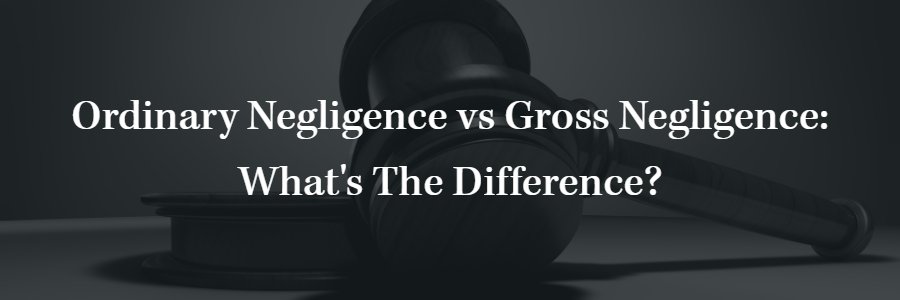Negligence is a word that will come up often in personal injury cases. While most people have a general understanding of what negligence is, we need to be very careful about how we define types of negligence when it comes to personal injury lawsuits. There is a distinct difference between “ordinary negligence” and “gross negligence.” The outcome of a personal injury case and the compensation awarded could depend on the type of negligence present. Determining the type of negligence in a personal injury case can be difficult, so please work with an experienced Philadelphia personal injury lawyer for help with your claim.

What is Ordinary Negligence?
Ordinary negligence is the type of negligence that we deal with in most personal injury cases. This type of negligence occurs when a person fails to take reasonable precautions that other prudent people would take in a similar situation, thereby causing harm to somebody else. Some examples of ordinary negligence include:
- A driver who runs a stop sign because they were distracted by their cell phone, causing a crash and injuries.
- A store owner fails to put up a “wet floor” sign after mopping spilled milk, leading to a slip and fall accident.
- Property owners who fail to replace rotten wooden steps that subsequently collapse at a party, injuring several guests.
In each of these examples, the responsible party did not mean to cause harm to others, but their actions nevertheless resulted in the accident. Even if the responsible party did not intend to cause harm to another person, they can still be held liable for the damages they caused. In these cases, victims can recover compensation for medical bills, lost wages, property damage, and other costs associated with the accident. This can include pain and suffering damages.
What is Gross Negligence?
Gross negligence is going to be defined as extreme indifference to or reckless disregard for the safety of other people. Gross negligence is going to be more than just simple carelessness or a failure to act responsibly. This is typically going to be willful behavior conducted by the alleged negligent party. This type of conduct is likely to cause foreseeable harm. Some examples of gross negligence include:
- A driver intentionally sped through an area heavy with pedestrian traffic.
- Nursing home staff members fail to check on infected bed sores for days or weeks.
- A doctor prescribing a medication that a patient’s medical records show they are clearly allergic to.
Victims of gross negligence will typically be awarded the same types of compensation mentioned above in cases of “ordinary negligence.” However, victims could also receive a higher amount of compensation and could also receive punitive damages intended to punish the wrongdoer.
Working with an Attorney
If you or somebody you care about has been harmed due to the careless or negligent actions of another party, you should always work with an accident attorney in Philadelphia who can help you throughout your entire case. A skilled attorney will work to prove liability, and they will investigate the case in order to determine whether your situation was caused by negligence or gross negligence. Most individuals do not have the resources necessary to handle every aspect of their cases, but an attorney will ensure that you are cared for and that you obtain maximum compensation for your losses.